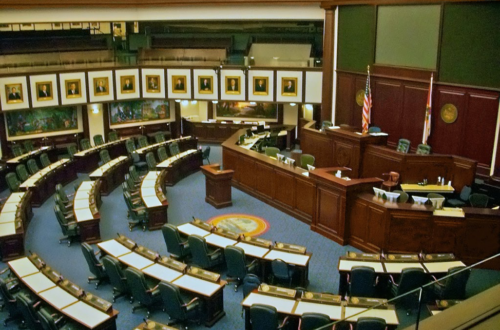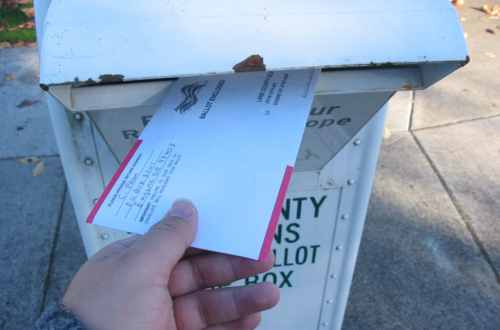The economic fallout of the coronavirus pandemic will be felt in Florida for years to come as economists with the state’s Office of Economic and Demographic Research now forecast a $5.4 billion budget deficit over the next two years.
The decline in state revenue was expected as commerce slowed down significantly due to the COVID-19 pandemic. State revenue was already $1.9 billion shy of what was expected for the 2019-20 fiscal year, and forecasters determined at the General Revenue Estimating Conference in August that revenue would fall $3.4 billion in 2020-21 and $2 billion in 2021-22.
Both houses of the Florida legislature passed their initial budget proposals based on January revenue forecasts on March 6. As the public health and economic crises began in the following days, the legislature modified its proposals by reducing tax cuts in order to preserve popular bipartisan investments in education, housing and the environment.
The General Appropriations Act ultimately passed on March 19 with a budget of $93.2 billion. After trimming $1 billion through line-item vetoes, Governor Ron DeSantis, R-FL, signed a $92.2 billion state budget on June 29.
Adjustments made during the legislative session proved far from sufficient at reducing the impact of the pandemic as Florida now faces the largest forecasted budget deficit in state history.
Although anticipated, the deficit will place difficult constrains on the state government, which is obliged by the Florida Constitution to pass a balanced budget each year. Pandemic-induced shortfalls will likely prevent major tax cuts or investments at the state level for the foreseeable future.
State law requires the governor to respond if the August conference projects a deficit, and if the deficit exceeds 1.5%, the legislature is required to hold a special session. However, DeSantis and legislative leadership are holding off on calling a special session to address the shortfall.
The Republican leadership argues that delaying the debate will allow the legislature to respond more appropriately after the situation has developed.
“[The] more we can push off, the better decisions we can make,” Sen. Wilton Simpson, R-Trilby, a key Republican on the Appropriations Committee and the Joint Legislative Budget Commission, told the Miami Herald. Simpson, who is slated to become the next senate president, remains confident that the state’s $4 billion budget reserves can plug holes for now.
The decision notably puts off what will surely be a contentious debate over the state’s uncertain financial situation until after the general election in November.
Democrats, meanwhile, are hoping to have that debate as soon as possible to adjust the budget. The state’s controversial unemployment system has become a flashpoint for the Democrats, who hope to increase the $275 maximum weekly benefit.
Rep. Carlos Guillermo Smith, D-Orlando, speculated to the Orlando Sentinel that the GOP is “afraid of what will happen when the mics are turned on.” Smith believes Republicans are delaying the debate not for practical reasons, but rather to prevent Democrats from holding the governor accountable.
However, the federal government may be able to prevent the state from having to raise taxes, cut programs, or both.
Florida has received $5.8 billion in emergency funding through the CARES Act, but the U.S. Treasury requires states use those funds for pandemic-related expenses, not for covering lost revenue or offsetting current appropriations. If Congress approves new funding, or if the CARES Act rules become more lenient, then the state may receive a much needed federal boost.
The state’s recovery will likely be difficult no matter what the federal government does. Florida’s economy is highly dependent on tourism, a sector that economists do not expect will rebound quickly.
Bob McKee, chief economist at the Department of Revenue, told the Herald thatthe lack of tourists impacts many other sectors of the Florida economy. The forecast indicates the state revenue decline was driven by a $2.8 billion drop in sales tax, and at least half of that shortfall came from tourist spending.
Beyond the shortfalls in sales tax revenue, tourism also provides 1.3 million jobs to the state and was a massive driver in the state’s high unemployment levels. Unemployment benefits and increased Medicaid costs place more stress on the budget while high joblessness leads to a general downturn in commercial activity.
With uncertainty surrounding business, employment and consumption across the state, and revenue forecasts grim for the near future, it seems the pandemic will continue to loom over Florida for some time to come.
Featured image: Florida Capitol building in 2013. Unmodified photo by Michael Rivera used under a Creative Commons license.(https://bit.ly/3aX4pOu)





